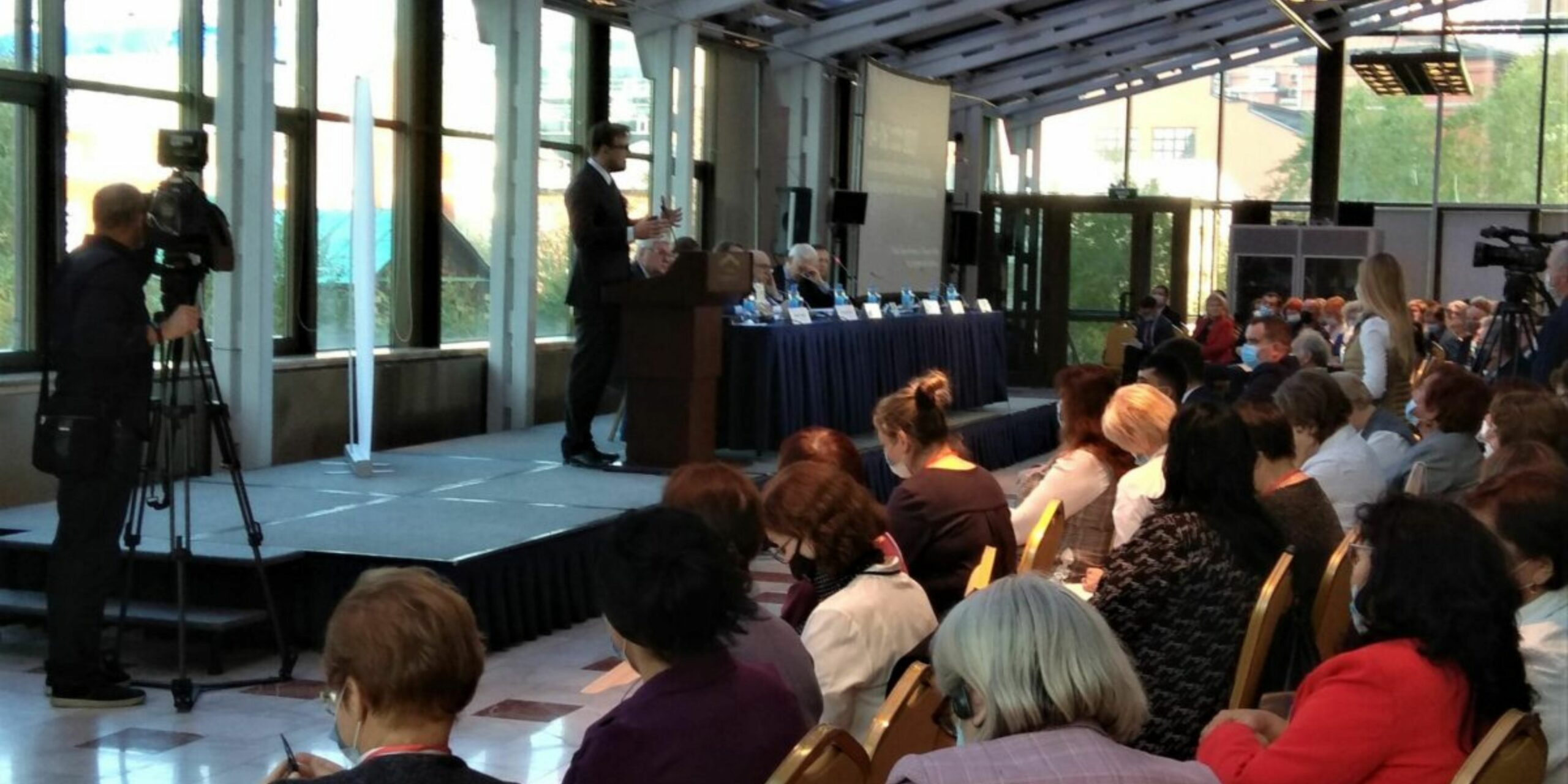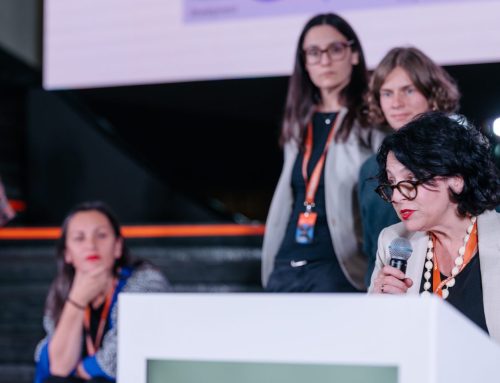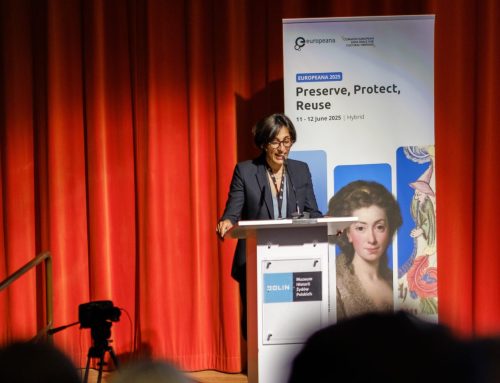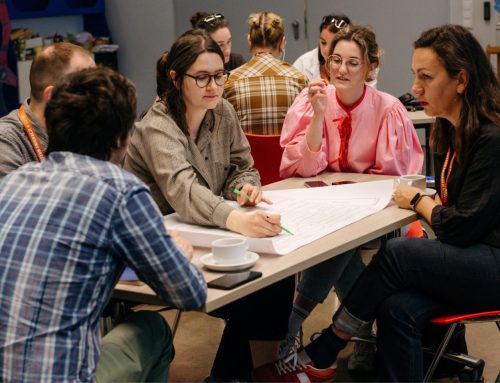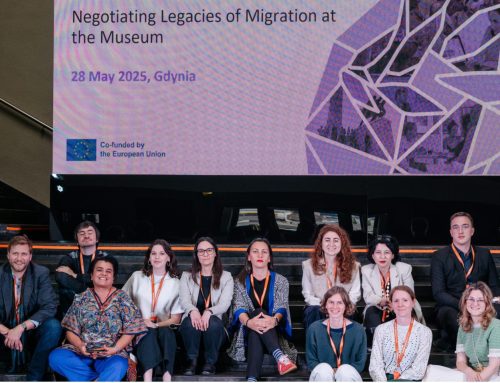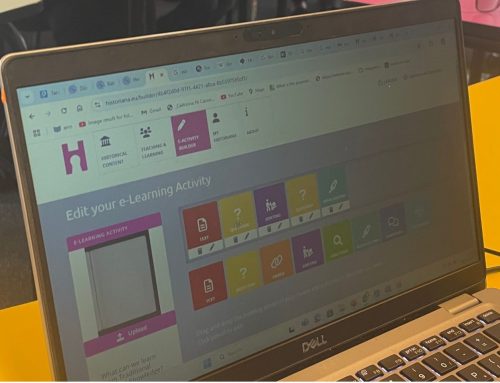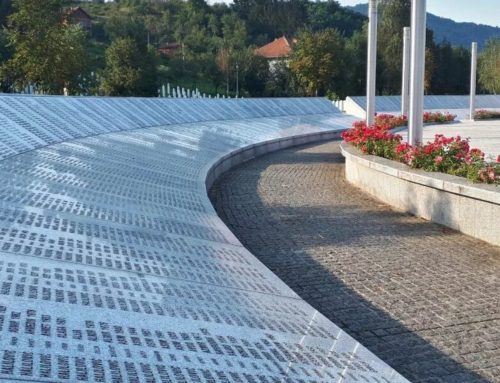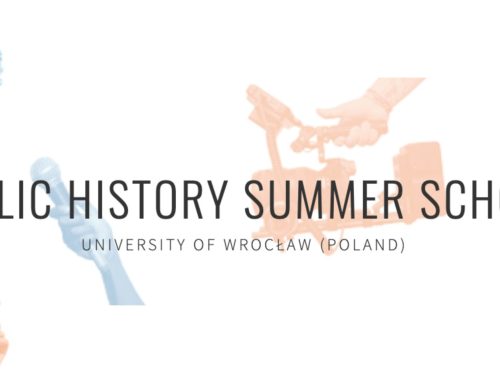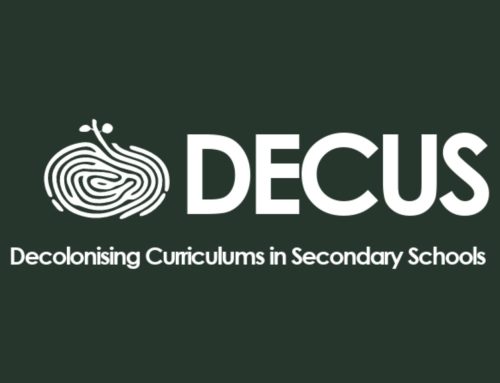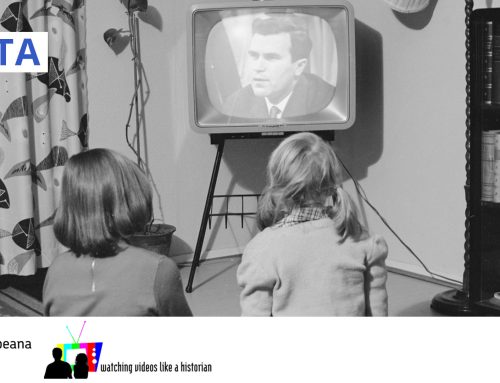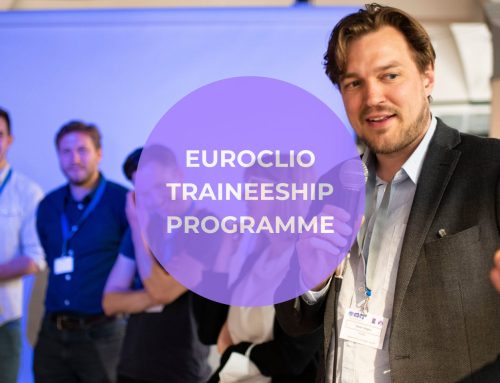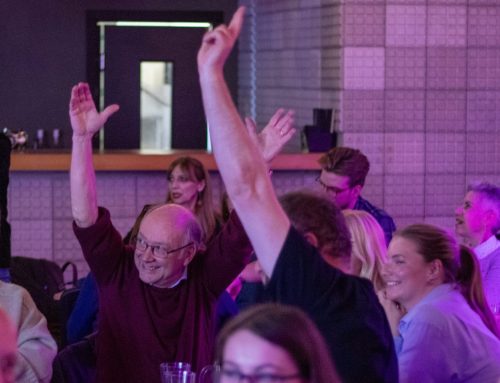Opening speech by EuroClio Executive Director Steven Stegers at the World Congress of School History Teachers,
Moscow, Russia, 5 October 2021
I would like to start by expressing my appreciation to organizers of this Congress, who have managed to bring together history educators from across the world and decision makers from all over the world, to learn from and talk to each other. Initiatives like these are much need to counter stereotypes, and overcome differences to achieve common goals.
It is a sign of hope that we can be here.
Russia was the first country where EuroClio worked intensely. I sincerely hope this meeting will be the start for more cooperation in the years to come.
Today I would like to speak about the value of innovative and responsible history education, why it matters, and by doing so clarify what we mean with this concept.
So, why do I believe it does matter?
History education is uniquely suited to teach about challenges on global and local level: Climate change, the fragility of democracy and competing world views, are just a few. It is the best chance that we have to create a better future.
The interpretative nature of history – where historians offer competing interpretations of the same facts – forces students to think for themselves. When students are presented with different interpretations, they have to ask which interpretation they find most convincing.
As a result, students learn how to respectfully disagree, how to convince others, how to be challenged in their own thinking, and how to deal with uncertainty. They will realize that the way people see history is influenced by their beliefs and experiences.
With an understanding of difference, ability to put themselves in the shoes of others and willingness to consider alternative explanation, these students more likely to find peaceful solutions to conflicts, and deal with difficult pasts.
The historical method that is at the heart of history education is the perfect antidote to fake news and disinformation.
Student learn to look for sources, to analyze and interpret them, to consider different explanations, to read between the lines, to check facts, and to adjust conclusions in the light of new evidence.
Student learn to resist manipulation.
There is more that studying history can contribute to the personal development of young people. History enables students to ask questions and makes them curious. This includes seeking answers to difficult questions, thinking about moral dilemmas and reacting to historical injustices.
This helps them to develop a moral compass.
All of this helps students to succeed at school, but also in life.
How to achieve all of this in practice?
Well, it is easier said than done.
Students need the right level of challenge and support. If it is too easy, students get bored. If it is too difficult, they get frustrated.
Keeping up to date with the latest research is challenging. Everyday new research is done and keeping up with this takes time. The same applies for the research of historical source materials and the creation of learning experiences that are tailored to the needs of individual students.
In many countries, educational systems do not support innovative and responsible history education.
Many educators are struggling with the amount of content that they need to cover in the curriculum. This leaves very little time to go in depth, to teach students how to do their own reach. This makes it difficult to teach students how to think, instead of telling them what to think.
The lack of choice in the curriculum is another challenge that many educators face. This makes it difficult to focus on those questions and topics that resonate with the students, that are meaningful for them.
A final challenge for many educators that I would like to highlight here, are the exams that are not assessing the right things. If students who challenge a teacher, textbook, or other authority on the basis of solid evidence and sounds arguments are punished instead of rewarded, there is no room for critical and independent thinking.
I greatly admire educators who are able to make history teaching motivating and meaningful despite all these challenges. I would like to express my gratitude to all the educators who are spending time with us despite the demanding jobs. I realise that you being here, means you have to catch up with more work later.
Let’s make this worth your time.
I wish us all a great congress.
Steven Stegers
Executive Director
EuroClio, European Association of History Educators

